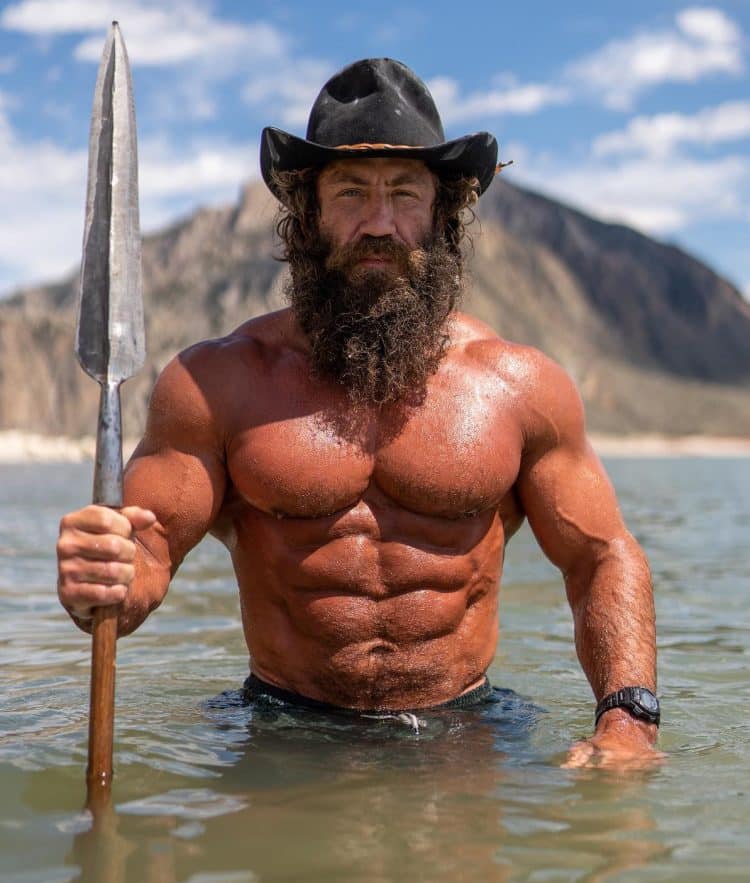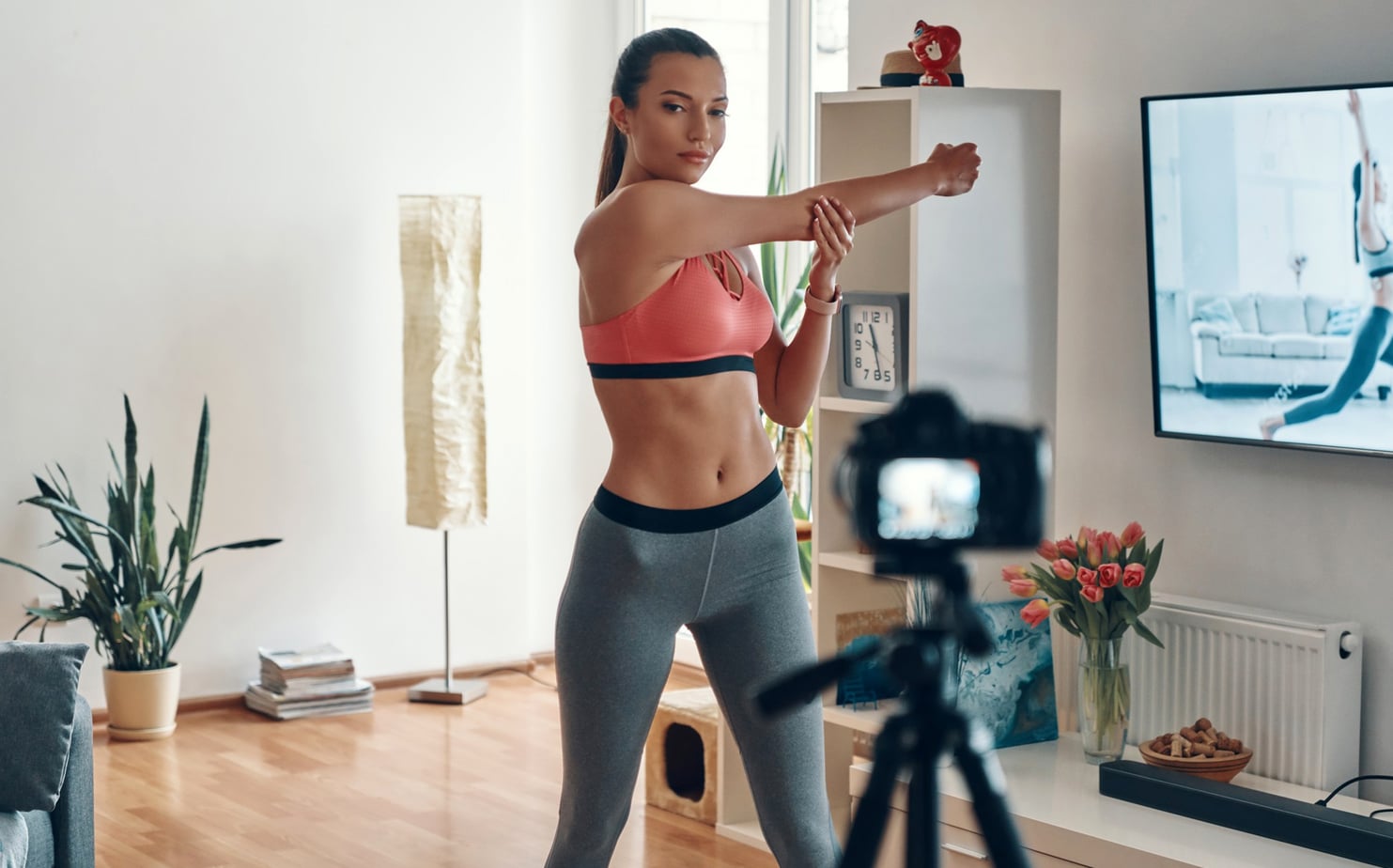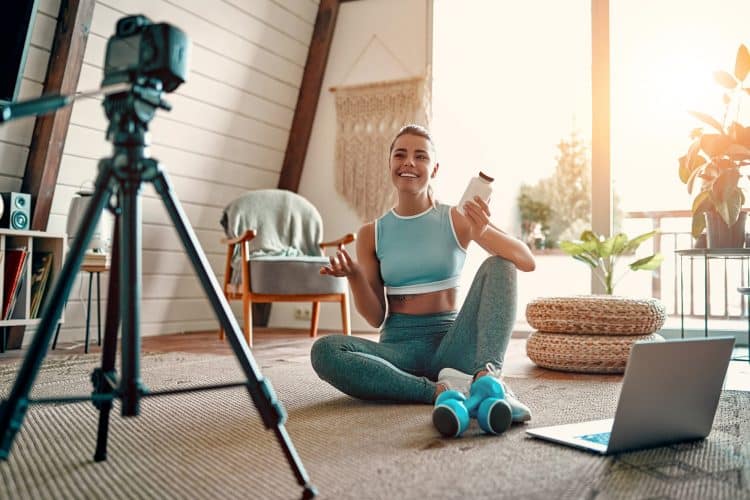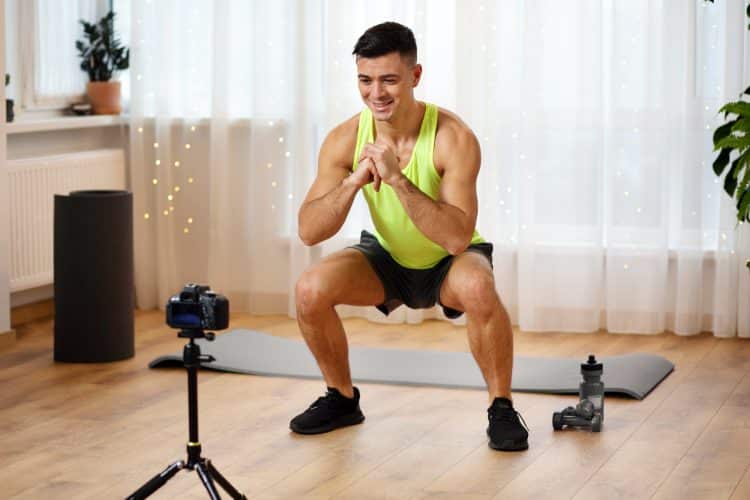The internet is one of the best and the worst things to happen to the fitness industry. In terms of benefits, it means almost every exerciser has access to tons of helpful training and nutrition information that they can use to get into better shape in less time.
You no longer need to buy books or hire a personal trainer or dietician to reach your goals. Instead, you can educate yourself online and become your own coach.
Awesome!
However, to put it bluntly, a large percentage of the information on the internet is just plain wrong. We’re not talking a little inaccurate or slightly outdated, but so wrong that it’s dangerous. Putting that information into action could do you harm.
Of course, no media source can be 100% right 100% of the time, and we all make mistakes occasionally.
But some of this misinformation is spread intentionally for the sole purpose of attracting followers, scoring likes, and making money. It borders on fraudulence. We’re talking about fitness influencers and other fitness content creators.
Of course, there are good and bad influencers, but people with little fitness knowledge will be hard-pressed to tell them apart. After all, they look and sound convincing even when they don’t know what they’re talking about or are spinning yet another untruth.
In this article, we explain what to look for in a fitness influencer so you have a better idea of who to like and follow and who to unlike, unfriend, and break up with.
The Problem with Some Fitness Influencers
Before you think this is a hit piece meant to assassinate all fitness influencers, it’s important to stress that they’re not all bad. In fact, a great many are very knowledgeable, ethical, and professional. They have your best interests at heart and want you to succeed.
This type of fitness influencer tells the truth, puts out good-quality content, and isn’t trying to deceive you or rip you off.
However, a growing number of fitness influencers are none of these things.
They’re unqualified, have no problem deceiving their audience, and will post almost anything to get more followers and likes. They don’t care about your health or progress and aren’t concerned about who they hurt in their quest for fame and fortune.
Needless to say, we’re 100% behind the good influencers, and thank them for doing a great job. However, the bad need to be eradicated or, better yet, ignored, so they basically die out naturally.
But how can you tell the difference? After all, a knowledgeable fitness influencer often looks the same as someone who doesn’t know one end of a barbell from another.
While there is no foolproof method for separating the good from the bad, there are a few things you should look for when deciding who to follow and who to scroll past.
How to Recognize a Bad Fitness Influencer
To the uninitiated, most fitness influencers look the same. They’re lean and fit, post similar-looking content, and sound like they know what they’re talking about. However, as a discerning exerciser who wants good information, there are several things you can look for that will help weed out the good from the bad.
These include:
They post more entertainment than educational content
All fitness influencers post selfies and training videos, and these can be motivating and inspiring and are often instructional. However, if an influencer posts mostly images and very little educational or instructive content, they’re more of a model/actor than a fitness authority.
There is nothing wrong with looking like you practice what you preach. Still, an endless reel of images with the occasional tidbit of information won’t help you get in shape. That would be like a chef sharing pictures of a meal but not the ingredients or cooking methods.
It’s also important to differentiate between fitness educators and fitness entertainers. Fitness entertainers post things like extreme workout challenges that only show how much they’re prepared to suffer for their likes. By all means, enjoy watching these videos, but don’t feel you need to emulate them.
They’re all about the product placements
Fitness influencers are often sponsored or paid to promote products. That’s okay; we’ve all got to work to make money.
However, suppose an influencer repeatedly suggests that the ONLY way to get in shape or lose weight is you use a supplement or exercise machine. In that case, it’s time to sever ties with them as they’re trying to fool you into buying what they’re selling.
Ultimately, you don’t need supplements or special workout machines to get in shape. Humans have exercised successfully for centuries without exotic powders or expensive equipment.
There is a big difference between suggesting you need to consume more protein and that fat burner pills are all you need to shed fat and get a six-pack. One is hard to refute, while the other is just wishful thinking.
They have no certifications or accreditations
The only qualifications you need to be a fitness influencer are an internet connection and to look the part. If you are in shape, people assume you know what you are talking about. Unfortunately, that is not always the case.
In fact, some influencers are in shape not because of their diet and workout plan but despite it. They’re genetically blessed and have achieved good results by doing the wrong thing.
Needless to say, the average exerciser is not so lucky, and copying the workout or diet of this type of influencer will leave you frustrated with your lack of progress.
So, get your advice from influencers with fitness qualifications and professional accreditations. People who have these tend to display them prominently in the “about” section of their profiles.
They lack age and experience
We all have to start somewhere, but experience tends to come with age. Only after doing a job for a long time can you consider yourself to be an expert. Very young and inexperienced fitness influencers often look the part, but that doesn’t mean they’ve cracked the code and now know “the secret” to getting and staying in shape.
Older, more experienced influencers will have had time to try more approaches and combined those approaches with changing life circumstances, such as having kids, balancing exercise with a job, etc. Personally, I’ve been working in the fitness industry for over 30 years, and I’m still learning and evolving as a coach and educator.
That’s not to say you should dismiss information from younger influencers out of hand. However, it may be quite a narrow point of view simply because they haven’t had time to experience many other methods yet.
They say they’ve discovered the one true way
Anyone who tells you or believes their diet or exercise program is the only way to achieve your goals is wrong. Ultimately, there are hundreds if not thousands of workouts and dietary approaches out there, and they all work for someone.
Because of genetic variation, lifestyle, aging, psychology, and numerous other factors, there is no one size fits all exercise and diet solution for every fitness and weight loss goal. What works for you might not even work for your closest relative.
The one true way does not exist. Suggesting there is such a thing should make you question any influencer’s credibility.
They’ve been caught in a lie
Some unscrupulous fitness influencers get caught telling lies and are either outed or forced to come clean. Examples include using performance-enhancing drugs after saying they are natural, using fake weights, posting photoshopped images, or lying about their credentials.

Once a liar, always a liar, and even influencers who come clean can’t really be trusted.
For example, an influencer who admits to using steroids says he quit but still looks the same several months afterward is continuing the lie. Coming off steroids has a huge impact on both appearance and performance. No workout or diet will affect your body like a regular dose of steroids.
Their posts have no scientific backing
Scientists have been studying the effects of exercise for more than a century. Almost every aspect of training has been tested in laboratories all over the world. While there is still a lot we don’t know about exercise, we do know how exercise affects your body, what makes muscles grow, and how to lose weight and keep it off.
Of course, knowing and doing are two different things, but that’s another story…!
So, if a fitness influencer makes a claim about training or diet, they should be able to back it up with a citation or source. If not, they should be able to explain why what they are suggesting will work.
A few years ago, a well-known fitness influencer said women should do all their strength training with a narrow grip or stance because “wide grips and feet build wide muscles.” This little piece of nonsense quickly spread, and many exercisers accepted it as the truth.
This same influencer also said no women should train with dumbbells weighing more than ten pounds because “doing so builds unsightly, masculine muscles.” At the time, this person was one of the premier trainers in Hollywood.
Not one thing they said had an iota of scientific proof to support it. Not only that, it made no common sense! And yet, this trainer was in demand and charging hundreds of dollars for their time and wisdom.
If an influencer cannot back their claims with at least a little scientific evidence, or what they’re saying sounds stupid or too good to be true, it’s probably time to hit that unlike button.
They blur the line between fitness and medical advice
There is an inextricable link between fitness and health. Working out is good for almost every aspect of your mental and physical well-being. However, some influencers think they can give medical advice despite being completely unqualified to do so.
Unqualified medical advice can be dangerous and even life-threatening. Even most doctors refrain from giving impersonal advice, preferring to see their patients in person so they can make an accurate diagnosis. A fitness influencer with an audience of thousands or even millions of people should not give medical advice, as doing so is unethical and unprofessional.
They have a secret to tell you…
While it might seem like some fitness influencers know the secret to getting in shape and losing weight, the truth is there IS no secret. There are no shortcuts, magic workout routines, special diets, or miracle supplements.
If you want to get fit, tone up, build muscle, etc., you need to exercise. Because of the law of specificity, your workout must match your fitness goals.
Similarly, to manage your weight, you need to tune your caloric intake to your daily energy expenditure. No exotic teas or weird eating strategies will help if you are eating more than your body needs.
Address your exercise and diet needs, be consistent, and you will make progress.
If an influencer shares a “secret” training method or diet, they’re just using keywords to attract your attention and may even be disguising the truth.
The only secrets to achieving your fitness goals are consistency and effort.
They post controversial content just to get more attention
Some influencers, and internet celebrities in general, will post anything to get you to look at their content. The more shocking or angering, the better. For example, there has been a recent spate of influencers posting videos of other exercisers and critiquing their form or accusing their fellow gym members of creeping.
These posts serve no other purpose than to get the influencer more attention. But, as the saying goes, there is no such thing as bad press. However, this kind of content does nothing for an influencer’s credibility and often shows them in an unfavorable light. Instead, they should be supporting people to exercise and not knocking them down.
How can Fitness Influencers Help You?
It’s important to note that some fitness influencers share nothing but good quality content designed to help you reach your fitness and nutritional goals. These people are worth following as you can learn a lot from them. Their advice is sensible, actionable, safe, and backed by science. They don’t have to rely on cheap tricks and stupid stunts to attract their audience.
In contrast, poor-quality influencers are nothing more than a distraction that can lead you away from your health and fitness goals. They act like they know what they’re talking about when, in fact, most of what they say and do is wrong, either because they don’t know better or they’re being purposely deceitful.
However, even low-quality fitness influencers can have value.
For starters, almost every fitness influencer posts motivating memes and photos. While this won’t make your workouts or diet more effective, if it inspires you to get up off your butt and into the gym, those posts have value.
Secondly, you may want to emulate your favorite fitness influencer. Many have top-notch physiques, and there is nothing inherently wrong with wanting to look like them.
Finally, fitness influencers can be entertaining. However, it’s crucial to filter their output so you can separate the good advice from the bad. Use the information in the previous section to weed out the sense from the nonsense.
Closing Thoughts
Influencers are now a part of the fitness industry. Some are excellent and put out helpful and informative content designed to get you closer to your diet and exercise goals.
Others are just entertainers. Their content is inaccurate, and following their advice is a waste of time and could even be dangerous. Some influencers are purposely deceitful and constantly lie to their audience.
Unfortunately, fitness influencers are also unregulated, so distinguishing the good from the bad is often tricky.
As such, you must assess what you are watching and reading and make informed decisions about your health and fitness. If in doubt, look for corroborating information or scientific studies to support an influencer’s claim. This is usually as simple as using Google or PubMed.
Finally, seek out reputable sources for your fitness information – like Fitness Volt. You are much more likely to get accurate information from a dedicated website than from a fitness model pumping out content for fame and fortune.
Tip: If you're signed in to Google, tap Follow.












